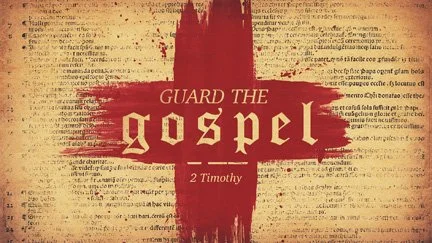Genesis 12:1-4a
Every time I have moved to a new parish, I have preached on this passage on my first Sunday. It is a story that has a history with me, a story that I have a history with. It is a story about trusting God when you have little or no information about what the future is going to hold. It is a story about prioritizing obedience to God above loyalty to family or love of home. It is a story about faith.
Abram was 75 years old when God called him to leave home and go to the land that God would show him. I try to imagine that. Abram was quite nicely settled, firmly into his retirement, surrounded by family and well provided for. And yet, God chose Abram to become the father of his chosen people. We are not told much about how this came about. We don’t know why Abram was the one God chose. We don’t know how Abram knew that it was God speaking to him. Was he in prayer at the time? Did it happen in a dream? We don’t know why Abram had to leave where he was in order for God to fulfill the promises. We don’t know how much time passed between when God called Abram and when he actually left. And we don’t even know whether Abram spoke with his wife Sarai about his conversation with God.
What seems apparent is that Abram did not spend any length of time in discernment before making the decision to leave. When I have felt God calling me to make a change in my life, I have spent a great deal of time in discernment. I prayed, I read scripture, I talked with family members, friends, and colleagues. But Abram did not do any of those things. He didn’t talk it over with his family, he didn’t weigh the pros and cons, he seemingly did not even pray about it. He just heard the voice of God calling him to leave and he left. That, my friends, takes faith.
Of course, it also required Abraham to trust in the promises that God made to him. “I will make you into a great nation. I will bless you. I will make your name great. You will be a blessing. I will bless those who bless you and curse those who curse you. All peoples on the earth will be blessed through you.” That’s a lot! And it sounded good to Abram. So even though he didn’t understand what it all meant or how God was going to work it all out, Abram had faith that God would deliver, and he packed up his family and his servants and his property, and he set out on an unknown road into an uncertain future based on a known and certain God. Corrie ten Boom wrote, “Never be afraid to trust an unknown future to a known God.” And that is precisely what Abram did.
I always admire people who have that kind of faith. People who hear the call and immediately get ready to go. People like Abram. People like Peter and Andrew, James and John, who immediately left their fishing boats behind and followed when Jesus called them. And I have tried to grow in that kind of faith myself. I have tried to become more willing to go sooner, and not take so much time overthinking or deliberating about it. But there is a part of me that seems to always want to wait until I can see a little ways into the future, to reassure me that the choice I am making is the right one, before I step out in faith. But is that real faith? Martin Luther King, Jr., stated, “Faith is taking the first step even when you can’t see the whole staircase.” You have to step out in faith before you can see the next part of the road ahead.
One of my favorite movies is “Indiana Jones and the Last Crusade.” Indy and his father, also an archaeologist, have been searching for the Holy Grail, the chalice used by Jesus at the Last Supper. It has been Indy’s father’s life work. They finally arrive at the site where it is to be found. Indy’s father is shot and is trying to help Indy locate the chalice. Indy is hoping to find it in time to use it to save his father’s life. He has to pass through a series of challenges, helped by his and his father’s knowledge of scripture and on their faith. Indy eventually comes to a great chasm. He can see the entrance to a cave on the far side, but he cannot see any way to get to it from where he is. The canyon is too wide for him to jump across. But the clues in his father’s research tell him that he must take a leap of faith in order to get across.
Indy steps up to the edge of the crevice and closes his eyes. Then he steps out into nothing. And a bridge appears under his feet, stretching across to the other side, right to the entrance to the cave. He goes across as fast as he can safely move, and finds the chalice in the cave. He is able to take it back to his father and give him a drink of water from it. His father’s wound is immediately healed. And it would never have happened if Indiana hadn’t had the courage to take that step of faith.
It is so hard to have that kind of faith. To step out into the unknown, when God has called you, and trust that God will lead you in safety to where he wants you to go. It is a faith that we have to live into, to grow into, over our lifetime. And it is the same kind of faith we need to have as a congregation. Cameron Howard, a professor at Luther Seminary in St. Paul, Minnesota, writes, “As churches face a narrative of decline spurred by aging and shrinking congregations, they must discern where God is calling them in this new era … Many churches face a journey into unfamiliar, unspecified territory, reimagining their ministries for a changing context. The call of Abram can offer hope and guidance in this process, pulling faith communities away from ‘we’ve always done it this way’ and reorienting them toward God’s agency, which leads to rewards and blessing.”
I think that what he is saying is that churches have to be willing to ask God to lead them into the future, understanding that the future will not look like the past. They have to be ready to try new things, to reach new people, to get different perspectives, and to structure themselves in different ways. They may even worship in new ways, such as having hybrid worship, streaming worship, or putting worship materials on the church website. We have begun doing new things in our churches. At Grantham, we went to the Select Board to ask how we could serve the community, and they suggested housing a food pantry. And while we intended to be open two days a month, we are currently open two days a week! And we are able to staff the pantry and sustain it financially because of volunteers and donors outside our church in the community. At Newport we are beginning to think in terms of being more connected to the community and discerning what needs we will be able to try to meet with the resources we have. And at Sunapee, we have had a lot of new connections leading us into hosting community meals, hosting community meetings, providing space for a Christmas tree festival, allowing the Girl Scouts to hold a dinner, and connecting with other community leaders and agencies in order to understand what the needs of our community are and how we can fit into resourcing those needs. It is an exciting time to be your pastor!
Oswald Chambers wrote, “Faith never knows where it is being led, but it knows and loves the One who is leading.” My journey as a pastor has brought me from South Carolina to New England. I have met so many amazing people along the way and been a part of some great ministries. I won’t say that I am totally comfortable with making big changes in my life, but I see it more as an adventure that I am on. I don’t always know where God is going to lead me, but I do know that God is the one in control. And that helps me to grow in faith and trust, because God has proven to be trustworthy. And I know that our faith in God will lead to good things for our churches.










